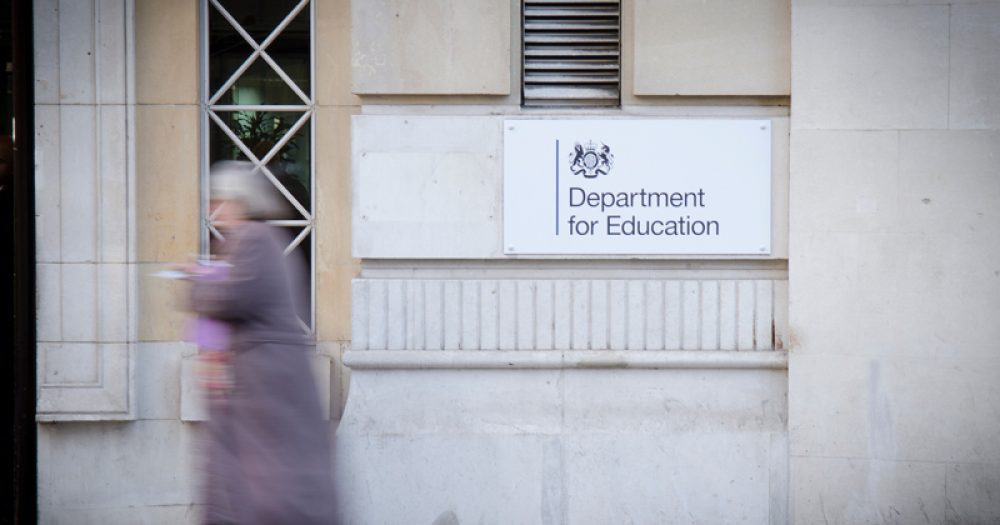Ministers are concerned about the “continuing drift” of pupils with special educational needs and disabilities into special schools and alternative provision, it has been revealed.
According to documents published today, the government fears decisions about the education of SEND pupils are being taken “primarily to avoid financial pressures from falling on a particular institution, by transferring costs elsewhere”.
There are also concerns about “disproportionate pressure falling on some mainstream schools and colleges, especially if they get a reputation for providing good SEN support”.
The Department for Education has published a call for evidence on SEND funding, which the education secretary will officially launch at the National Association of Head Teachers’ annual conference in Telford this afternoon.
It comes after ministers acknowledged “perverse incentives” in the current funding system, particularly around the current set-up whereby schools have to fund the first £6,000 of high needs provision themselves. School leaders have also voiced concerns about moves by councils to top-slice funding for SEND from mainstream budgets.
The call for evidence document sets out what the government wants to know from schools about provision, but also the issues that ministers think exist in the system.
The document reveals concerns about the movement of pupils out of mainstream schools “which is raising overall costs to the system without improving the outcomes for children”, and warns of the impact on small schools which “cannot easily manage exceptional costs within their budget.”
The DfE also warned of an over-emphasis on securing an education, health and care plan to “guarantee a particular level of financial support, rather than on making the special educational provision necessary to meet the needs of the child, with or without an EHC plan”.
It follows concerns in the sector that rapid increases in the number of EHCPs issued in recent years has in part been driven by cost pressures. Pupils with EHCPs receive more funding than those who don’t.
But the consultation will not address what most headteachers see as the elephant in the room – the overall lack of funding in the system.
“This call for evidence is not directly about how much funding is needed or about the statutory processes for meeting complex needs,” the document states.
“Rather, it is intended to focus on understanding how current funding is distributed, including how it enables mainstream schools to make provision for their pupils with additional needs, and on improvements that could be taken forward in future.”








As Homer Simpson would say, “doh!”. This is what parents of SEN children have been saying for ages. Classic example of finacial cutting off your nose to spite your face
So schools and college that have been acting illegally (because that is what perverse incentives mean when you strip them of the sugar coating) are now being asked what it would take to make them comply with the law.
The Secretary of State didn’t so much as mention the fact that schools and colleges are now openly saying that they will no longer take students with EHCP’s.
Is there any clearer way that this government could show its contempt for the children and young people with SEND who have been shoved out of schools and colleges or not allowed in in the first place?
So let me look into my crystal ball and see what will come out of this consultation and the government’s underlying plans. There will be greater segregation and the schools and AP units for these young people will not be funded properly, so will effectively be warehouses, quite possibly with basket weaving on the curriculum. There will be greater regulation of home educators, whose numbers have increased because there is nowhere suitable for their children to go, there will be an end to the entitlement to education till age 24. Schools will go on talking about inclusion while excluding the disabled, both pre-emptively by refusing to accept them in their classes and directly by failing to make the reasonable adjustments required by law.. Their example will continue to fuel the rise in hate crime against the disabled because they will not be part of society. And they will continue to deny it or consider the impact they have on families.
Schools, in my experience, want to do what is best for the young people in their care. Where schools endeavour to obtain a place in a specialist school for a child it is because they think it is best for the individual child and the other children in the school. Mainstream schools do not have the specialist staff, or equipment to meet the needs of the young people in many cases and they are funded at a much lower rate. Specialist schools will specialise in a particular SEN need, mainstream schools will have SEN students with a wide variety of needs and cannot therefore benefit from economics of scale. If government wants children with an SEN need to attend mainstream schools they need to give schools more funds.